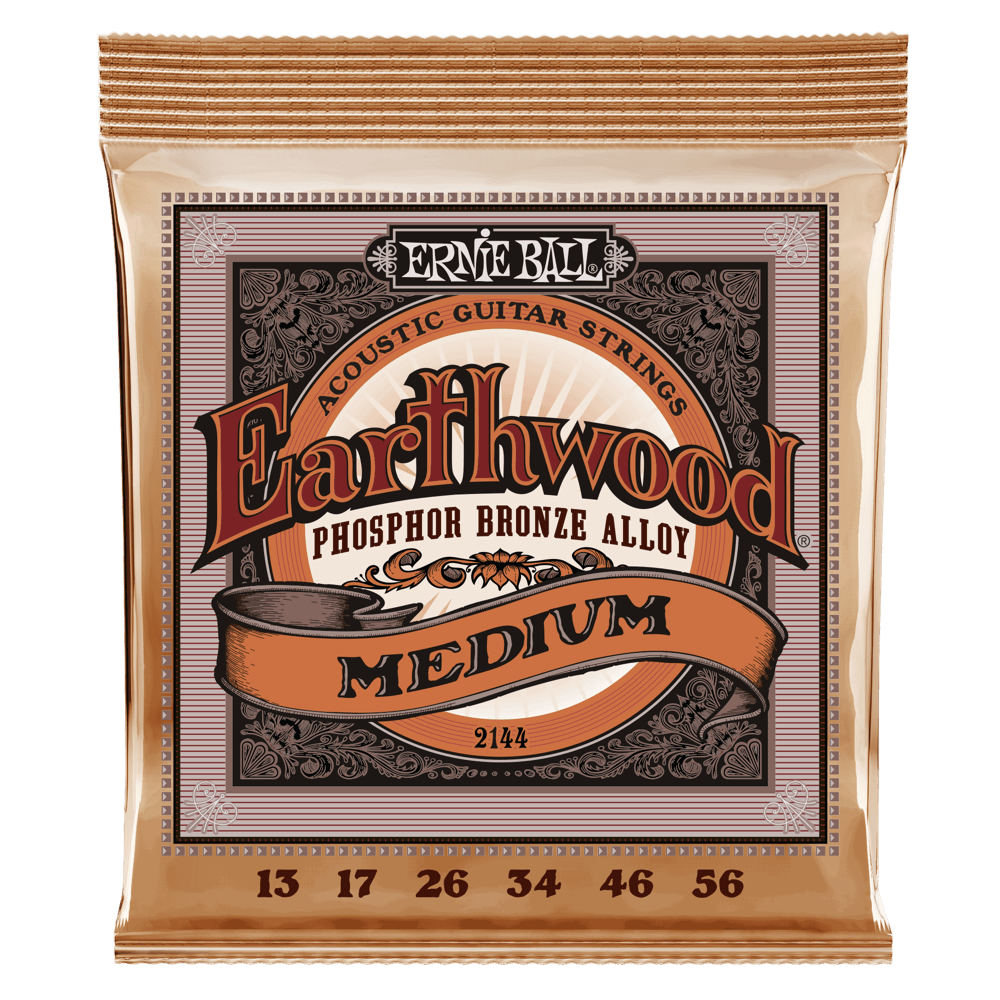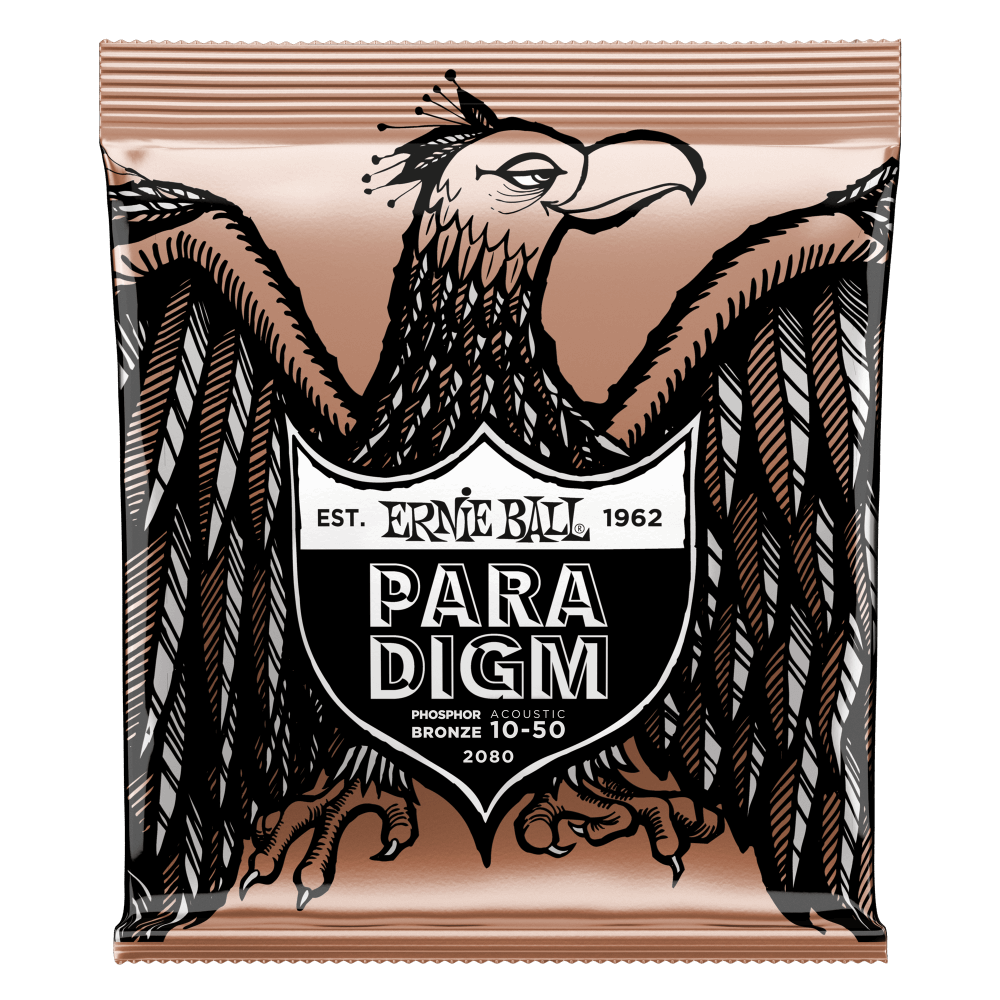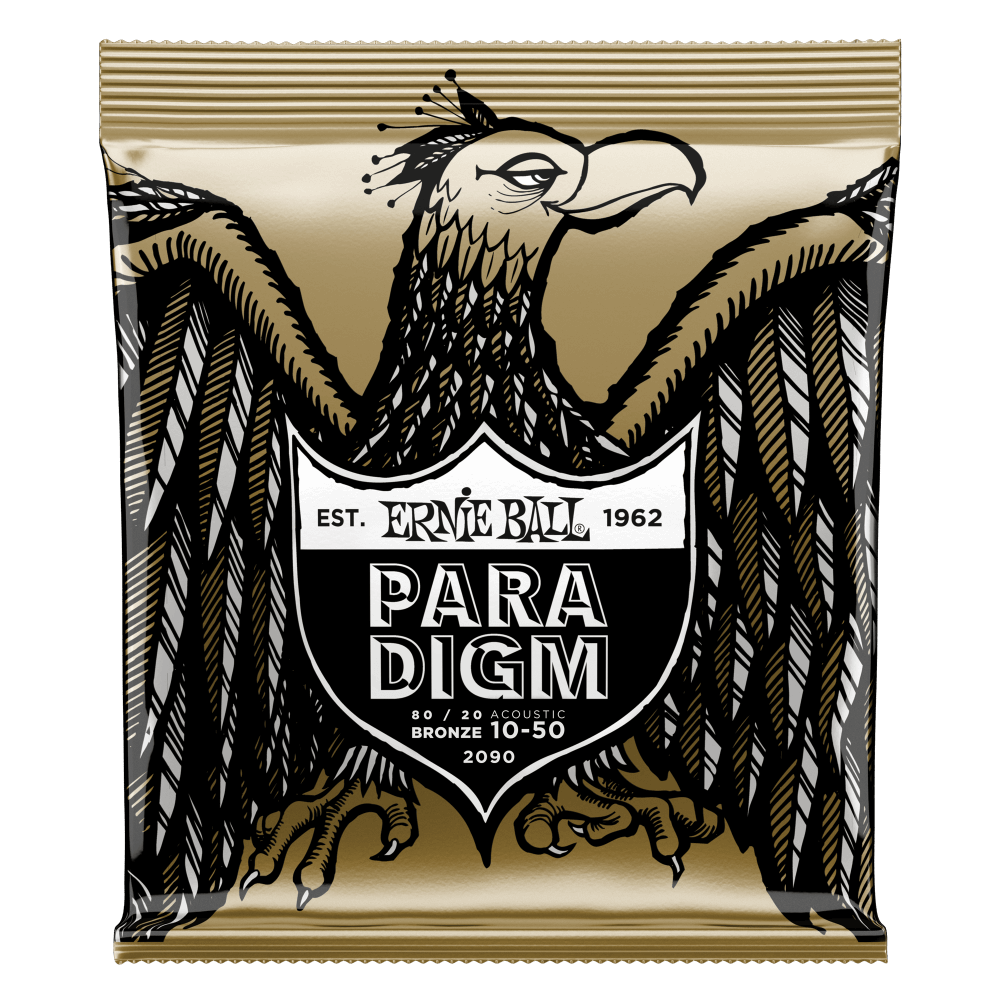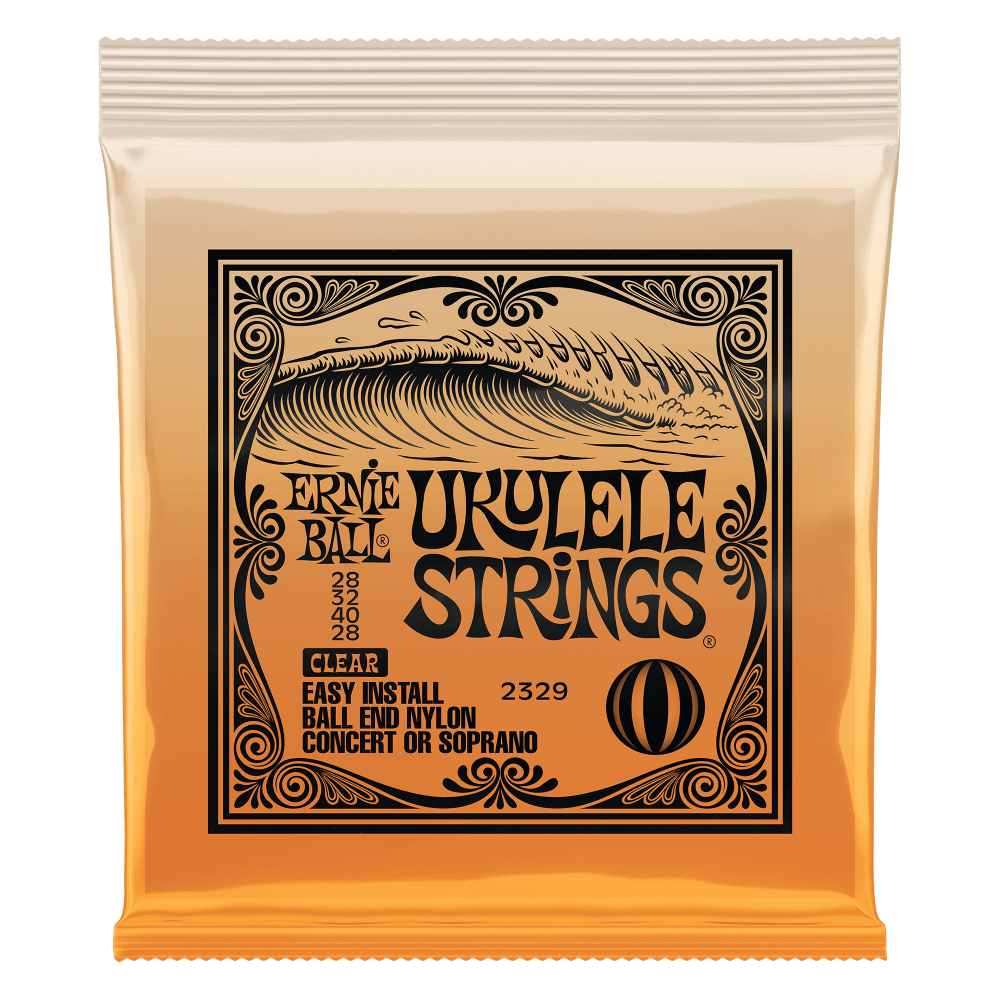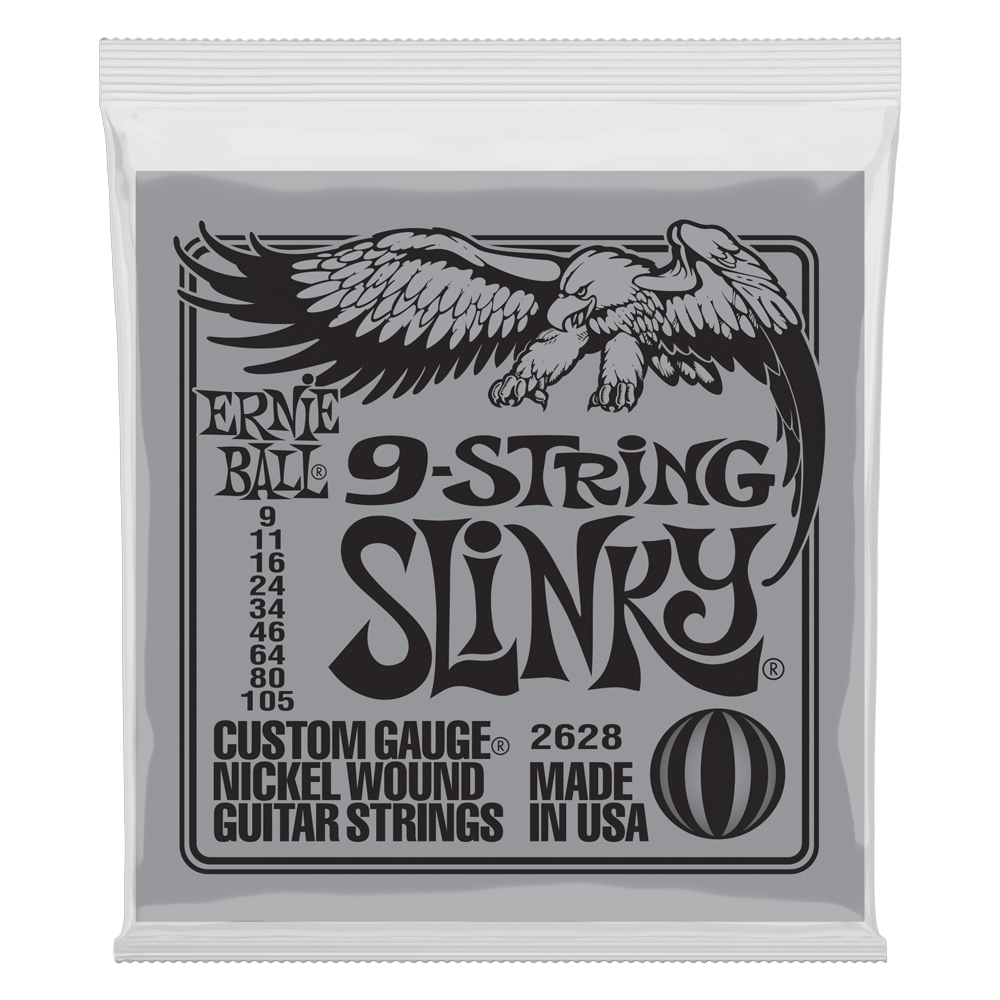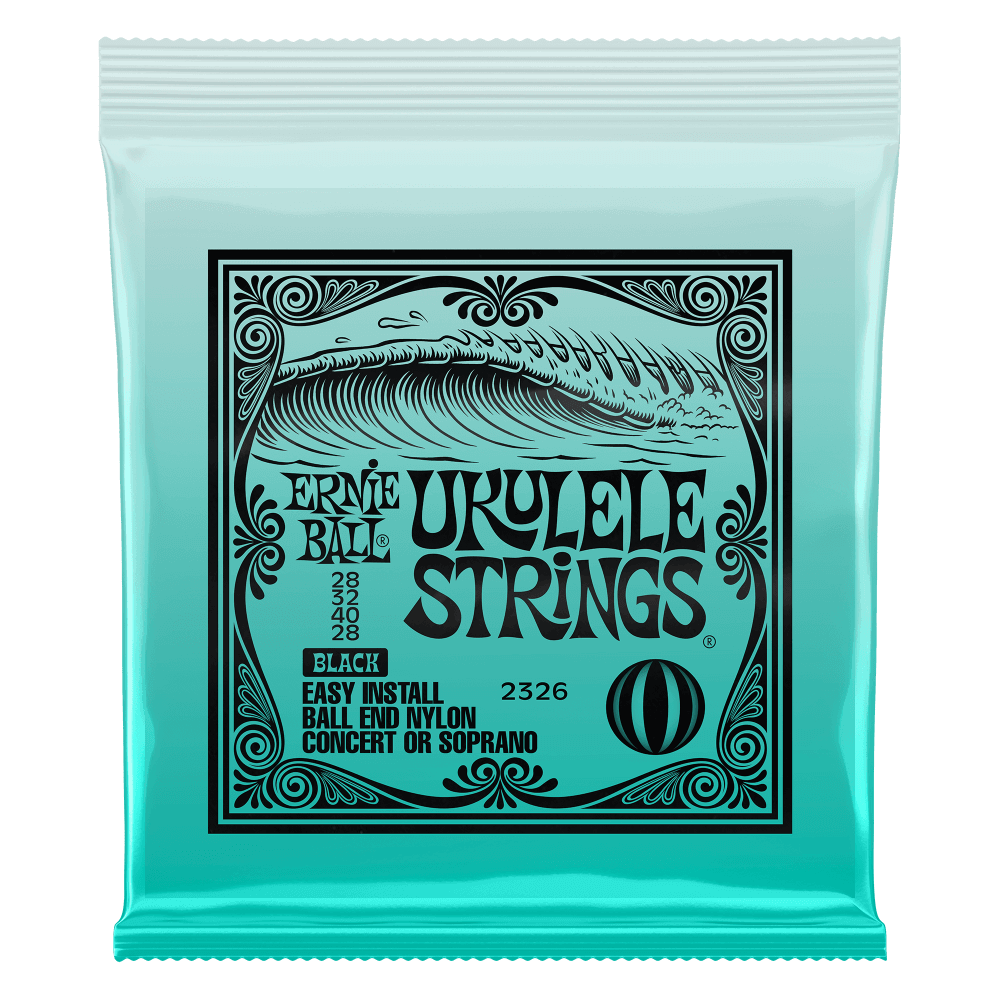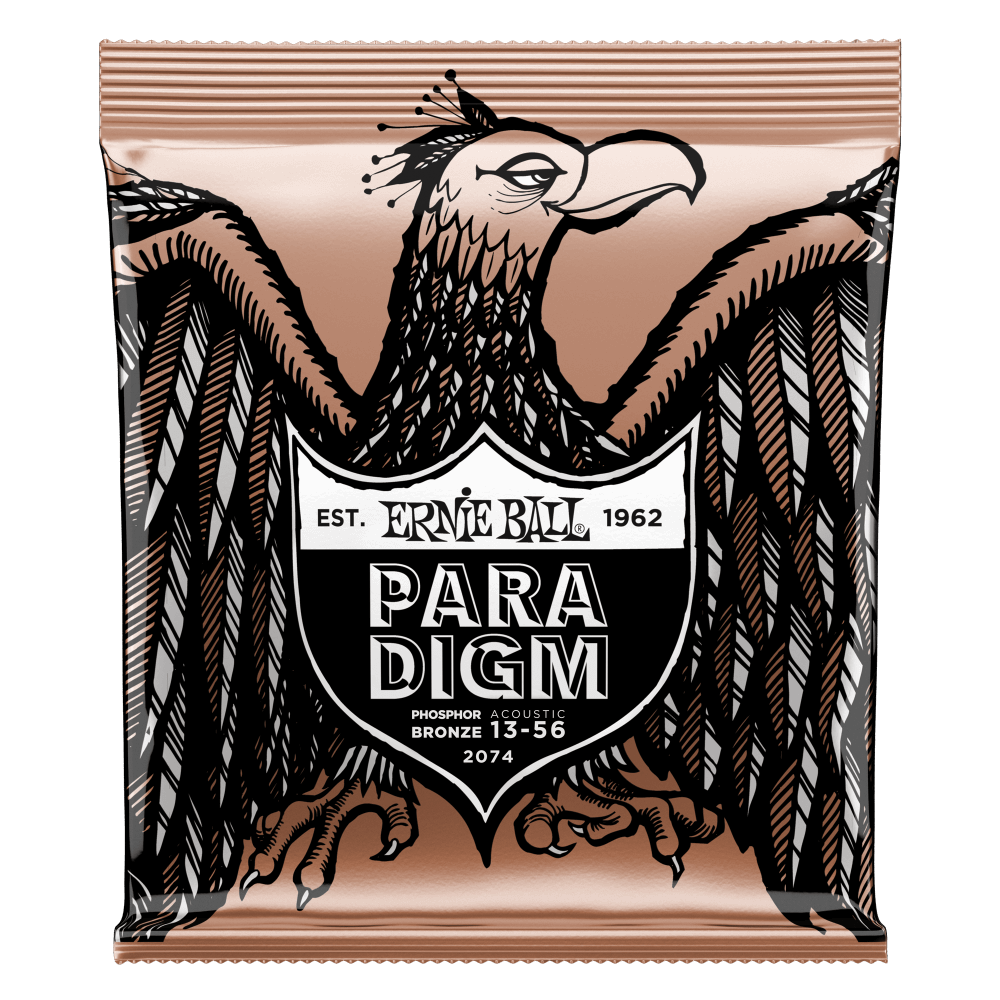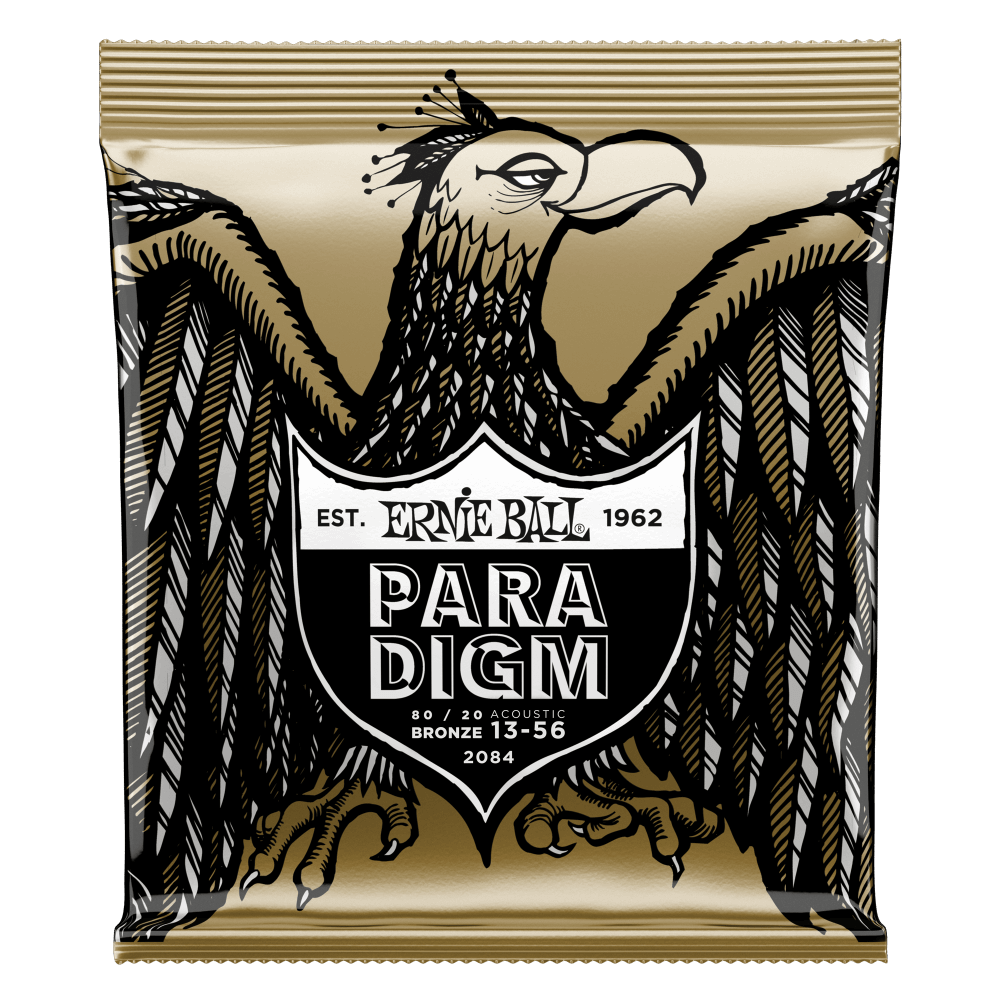Ernie Ball acoustic guitar strings offer musicians the power to handpick the sound of their music. Acoustic guitar strings highly influence the overall sound and tonality because there are no pickups or amplifiers to interfere. Just pure music. But how do you choose the right acoustic string for your desired sound? There are many different kinds of Ernie Ball acoustic guitar strings to choose from. This guide can help you select the right ones.
ACOUSTIC GUITAR STRING GAUGES
First, we’ll address the most important, but sometimes the most confusing, element of choosing the right acoustic guitar strings: the gauge. The gauge of a string refers to the thickness of a string measured in thousandths of an inch. The larger the number, the thicker the string. Here’s a quick cheat sheet for what gauges to select.
Light Gauge
Easier to bend, suitable for fingerpicking or single note playing
Ideal for vintage or smaller-bodied acoustic guitars
More treble, meaning subtle picking and strumming techniques stand out more
Heavy Gauge
More bass, meaning deeper and stronger tones
Work well with larger acoustic guitars
More volume and sustain
ACOUSTIC GUITAR STRING MATERIALS
Acoustic guitar strings can be composed of one or more types of material, and the different material(s) create different tones and sustainability. Here’s a quick comparison of the different types of Ernie Ball acoustic string compositions.

Slinky Paradigm
Ernie Ball Our new state-of-the-art wire drawing process coupled with our patented RPS (reinforced plain string) technology dramatically increases tensile strength by up to 35% and provides up to 70% more fatigue strength than traditional strings. Our PARADIGM wrap wire uses an exclusive plasma enhanced process to remove defects and greatly improve corrosion resistance. Get strings that last longer and sound fresher – without the tone-killing side effects of a coated string.
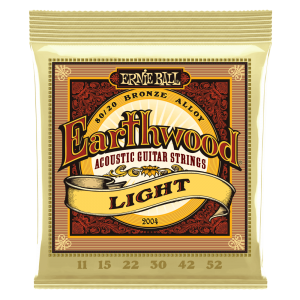
Earthwood 80/20 Bronze
Made from 80% copper, 20% zinc wire wrapped around hex shaped tin plated steel core wire, this is the most popular type of acoustic guitar string. They provide a crisp, ringing sound with excellent projection.
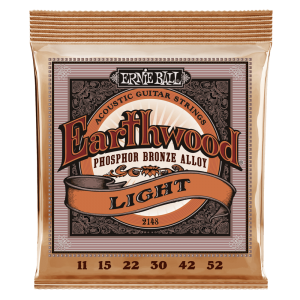
Earthwood Phosphor Bronze
Phosphor bronze strings are made of 92% copper, 7.7% tin, 0.3% with phosphorus wire wrapped around tin plated hex shaped steel core wire. These guitar strings have a light orange, gold color and provide a rich warm tone, with excellent clarity.
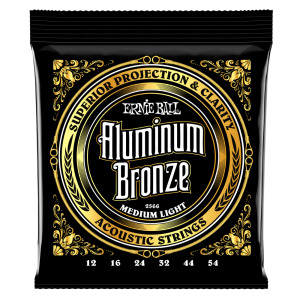
Aluminum Bronze
Aluminum bronze strings are made from a blend of copper and aluminum specifically tailored for acoustic guitar strings. They offer more projection and clarity than traditional bronze strings, while also providing improved corrosion resistance. Ernie Ball maraging steel hex cores and aluminum bronze wrap wire provide more pronounced lows coupled with crisp brilliant highs.
UNCOATED VS. COATED
Ernie Ball coated acoustic guitar strings use groundbreaking nanotechnology that repels unwanted moisture and oils that negatively impact your tone. Unlike most coated string products on the market, our proprietary treatment is applied to both the inner hex core and outer wrap wire to provide ultimate protection without compromising tone or feel. Ernie Ball offers Everlast Coated 80/20 Bronze and Everlast Coated Phosphor Bronze acoustic strings that are virtually indistinguishable from our uncoated string products allowing for the natural feel and sound players are accustomed to.
Coated strings generally last longer than uncoated strings and cost a bit more. Ultimately, coating is a personal preference; try both and decide which suits you best!
ERNIE BALL ACOUSTIC STRING DEMOS
In summary, there are several main things to keep in mind when selecting the right acoustic guitar string. Your own playing style, the desired tone, and finally, the age and condition of your instrument are all important factors to consider. The combination will determine which material and gauge is best for you and your guitar. Experiment with what feels best to you and what sounds best for the kind of music that you want to produce. Take a listen as Ryan “Fluff” Bruce, Peach Guitars, Paul Riario of Guitar World, and Andy McKee demo popular Ernie Ball acoustic guitar string sets, and explore all of our acoustic guitar strings here.

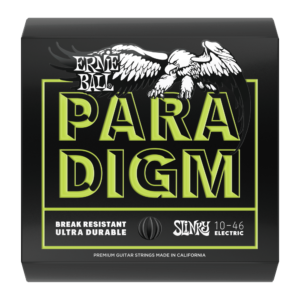
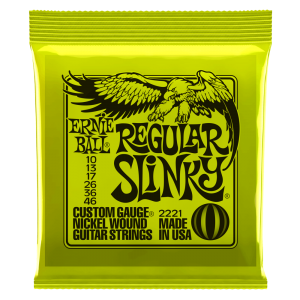
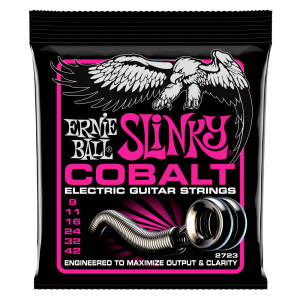
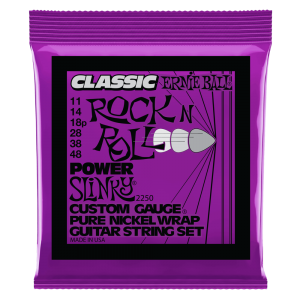
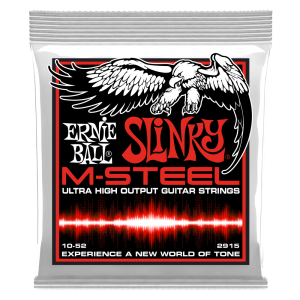
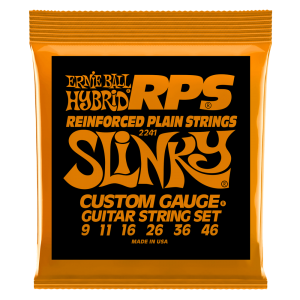
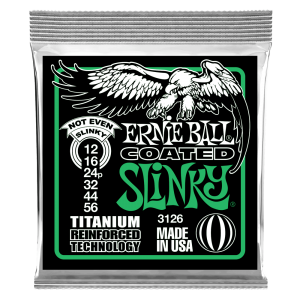
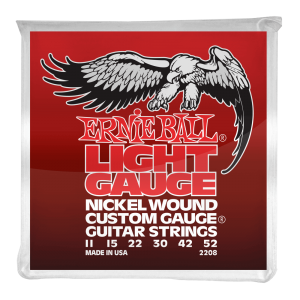
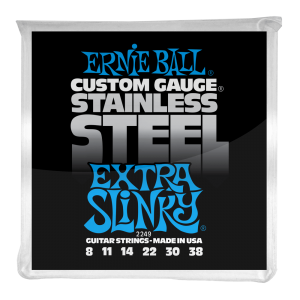
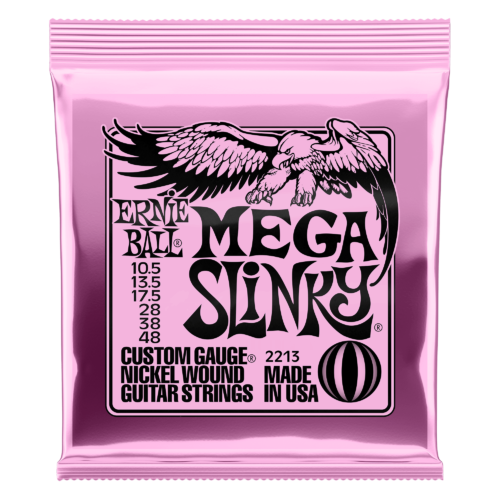
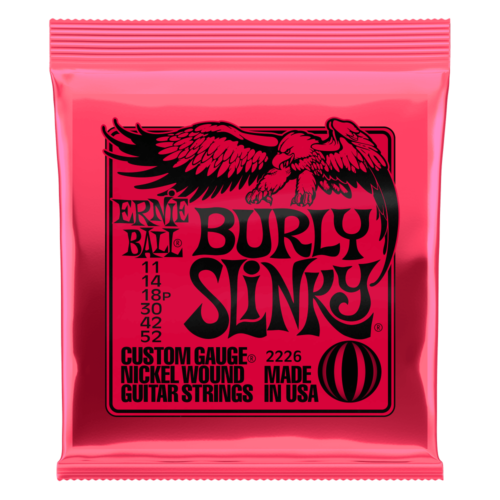

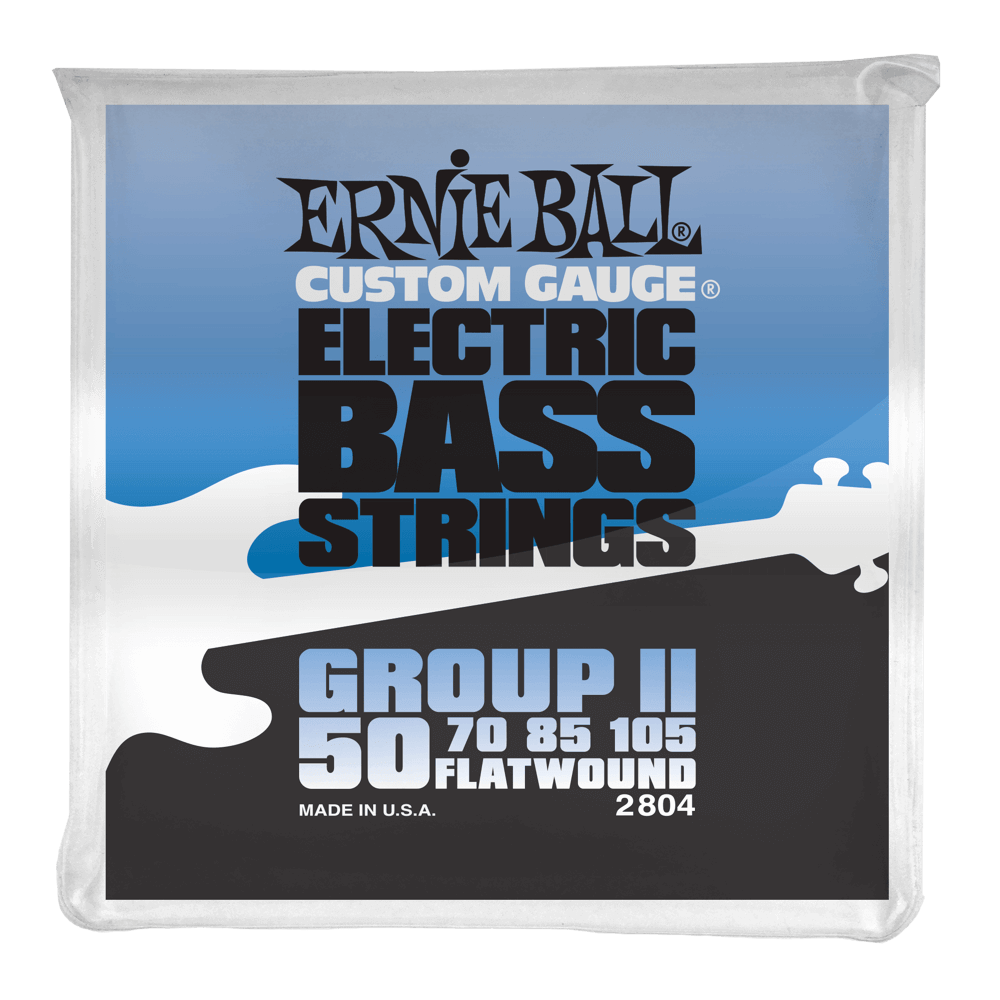 Flatwound
Flatwound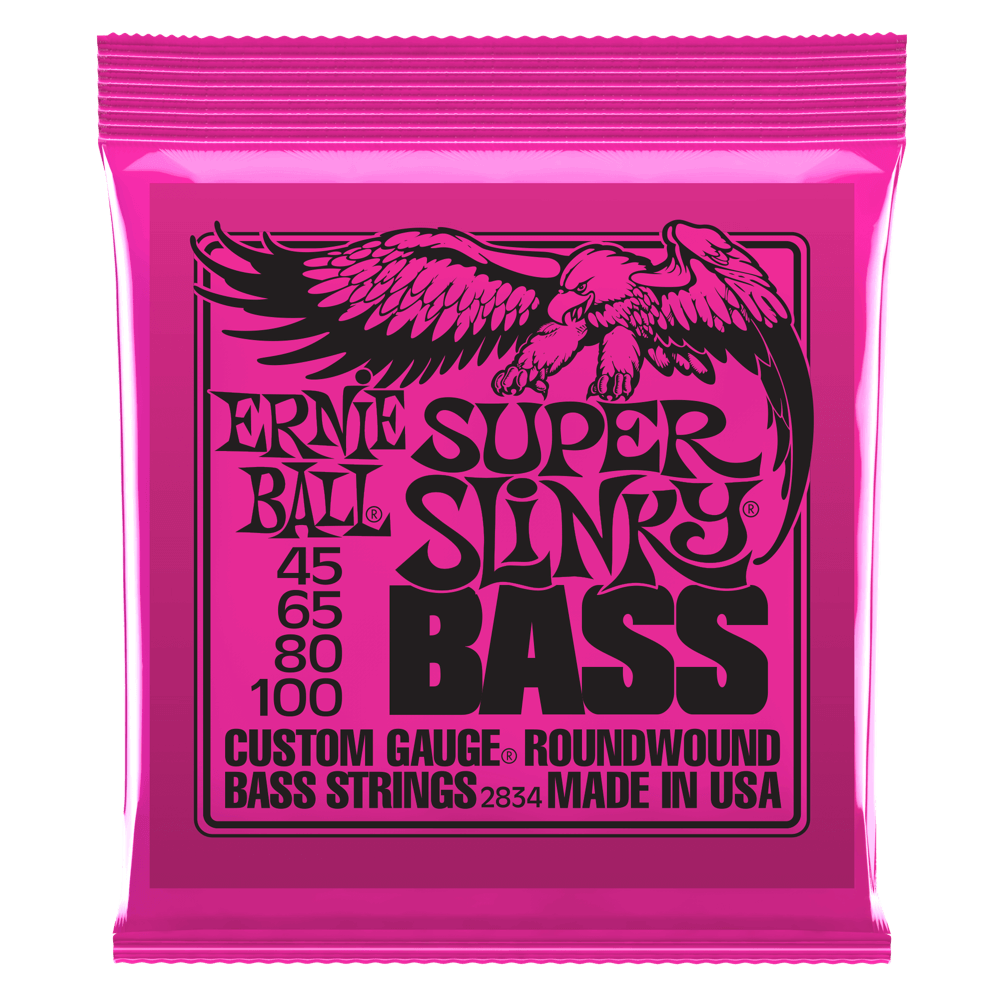 Slinky Nickel Wound
Slinky Nickel Wound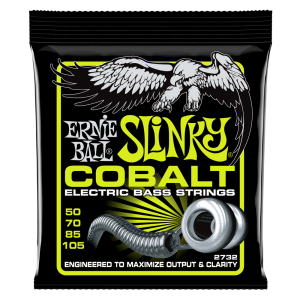 Slinky Cobalt
Slinky Cobalt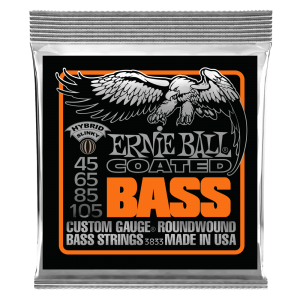 Slinky Coated
Slinky Coated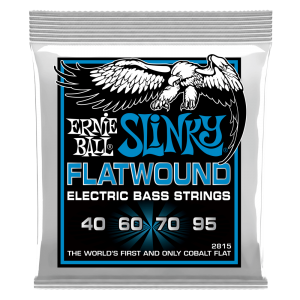 Slinky Flatwound
Slinky Flatwound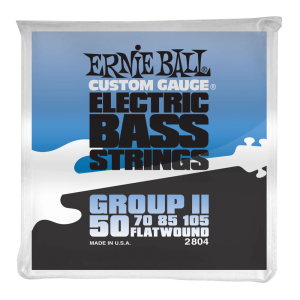 Flatwound
Flatwound Slinky Stainless Steel
Slinky Stainless Steel